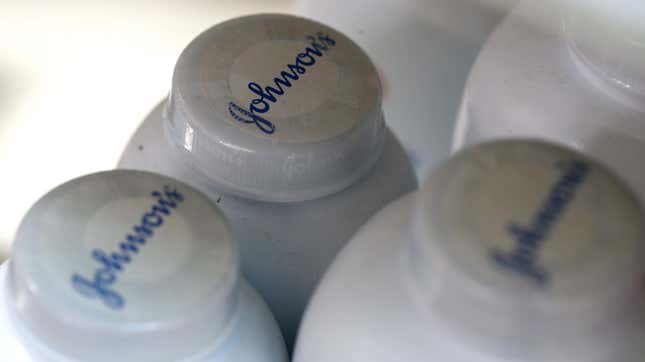
Johnson & Johnson will not be getting out of its obligation to pay up for losing a civil court case over its baby powder products that allegedly contained asbestos. On Tuesday, the Supreme Court announced it would not hear the company’s appeal of a $2.1 billion verdict from a 2018 trial in Missouri involving women who argued that the products contributed to their cancer.
In July 2018, a St Louis jury awarded $4.69 billion in damages to 22 women and their families, after having agreed with the plaintiffs that J&J’s baby powder made with talc could have also contained asbestos, a well-known carcinogen. The company failed to win previous appeals overturning the verdict, but by June 2020, they had succeeded in trimming the judgment down to $2.1 billion—still one of the largest civil awards in U.S. history and the largest involving their baby powder products. J&J had hoped their final appeal to the Supreme Court could still overturn the verdict, with their lawyers arguing that the original trial had violated due process.
However, the court decided not to give J&J an opportunity to argue further, refusing to consider their case at all in a brief written statement. This dismissal didn’t involve Justices Samuel Alito and Brett Kavanaugh, though no reason was given as to why. According to Bloomberg News, however, Alito and his wife are known to jointly own stock in the company, while Kavanaugh’s father once worked for a company that fought to keep warning labels off of talc-made products.
Past research hasn’t found a clear link between talc itself and cancer. And while it’s known that natural deposits of talc can be sometimes found next to asbestos, some but not all health agencies like the Food and Drug Administration had continued to endorse the safety of talc products and the lack of asbestos in them. As a result, earlier civil lawsuits against J&J over their talc products had failed. More recently, however, evidence has emerged that the company buried data dating back to the 1970s showing that asbestos could be readily found in their products. Other agencies like the World Health Organization have warned that talc containing asbestos should be considered carcinogenic.
This current lawsuit and other successful ones like it in recent years have relied on that new evidence to argue that J&J knowingly downplayed the real risk of their products that helped cause these plaintiffs’ cancers. In 2019, the FDA ran tests finding asbestos in some baby powder products, prompting recalls from J&J and, by May 2020, it had discontinued its talc products entirely, while still claiming that the change was “fueled by misinformation around the safety of the product.” However, the families themselves seem to be plenty pleased by the Supreme Court’s decision.
“Today, justice is served,” their lawyer Mark Lanier told Bloomberg. “Twenty families now get compensated for a horrible, unnecessary disease. And J&J, the trigger for that disease, is held accountable.”